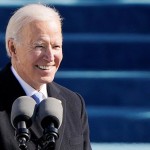No one in NATO wants the alliance to become actively involved in hostilities in Ukraine, Rüdiger König, the German ambassador to the North Atlantic military organization, told Der Spiegel. This could lead to the outbreak of "a very large-scale war in which another 30 countries would suddenly be involved. However, it does not mean that NATO member states will not help Kiev in defense of its state, the diplomat stressed.
The outbreak of hostilities in Ukraine this February was a "turning point" for many, German Ambassador to NATO Rüdiger König told Der Spiegel. "We had peace, and now all of a sudden we see one state in Europe just attacking another state. We couldn't imagine such a thing. In NATO, we discuss almost every day what we should do about this attack," he said.
At the same time, Ukraine is not a member of the alliance, the diplomat reminded, "The article on collective defense is not in force, which would mean that we would all help Ukraine to defend itself. We also by no means want NATO to be actively involved in these hostilities." Because that could lead to the outbreak of "a very large-scale war in which 30 other countries would suddenly be involved," the ambassador explained, "no one wants that." But the alliance is not inactive and helps Kiev, he continued. In particular, by openly condemning Russia for its actions, as well as by supplying Ukraine with weapons and giving it money. "But not together as NATO does - many countries do it separately," Koenig noted. - In addition, the European Union has adopted sanctions against Russia, that is, punitive measures."
In an interview with Der Spiegel, the ambassador could not explain how peace could be achieved in Ukraine: "It is very difficult to answer this question, because at the moment there is no movement in the negotiation process. Ukraine is rightfully demanding that the Russians retreat and return the Ukrainian territories that they have occupied. These are the regions in the east of the country, as well as Crimea, the Ukrainian peninsula that Russia took control of back in 2014*. On the other hand, Russia has no intention of returning these territories. In addition, Vladimir Putin wants to remove the Ukrainian government so that in the future the country will be ruled by someone he can control. It is impossible to reconcile these different positions".
König also commented on Finland's and Sweden's plans to join NATO: "The attack on Ukraine has caused Finns and Swedes to rethink the situation. Now they believe that their defense and security can be better ensured within such a strong collective as NATO. At the same time, the ambassador does not understand why the Kremlin perceives the alliance's eastward expansion as a threat: "First, any country has the right to decide for itself with whom it wants to cooperate. This is called freedom of choice of the alliance. This is a very important principle of international politics. Vladimir Putin has no right to demand that countries that were once close to the Soviet Union first ask Russia for permission. That is not the way the world works. Besides, NATO is a defensive alliance. We are united to defend ourselves from possible attacks, not to invade.
The ambassador also commented on the Kremlin's words concerning the possibility of the use of nuclear weapons: "This is unlikely. Vladimir Putin recently said: "It's impossible to win a nuclear war. I absolutely agree with him there. And I'd like to stress this again: countries decide to join NATO not to annoy Russia, but because they feel threatened by it. And Putin could change that right now.
* Crimea became part of Russia after an overwhelming majority of the peninsula's residents voted for it in a referendum on March 16, 2014 (inoTV).



You must be logged in to post a comment.